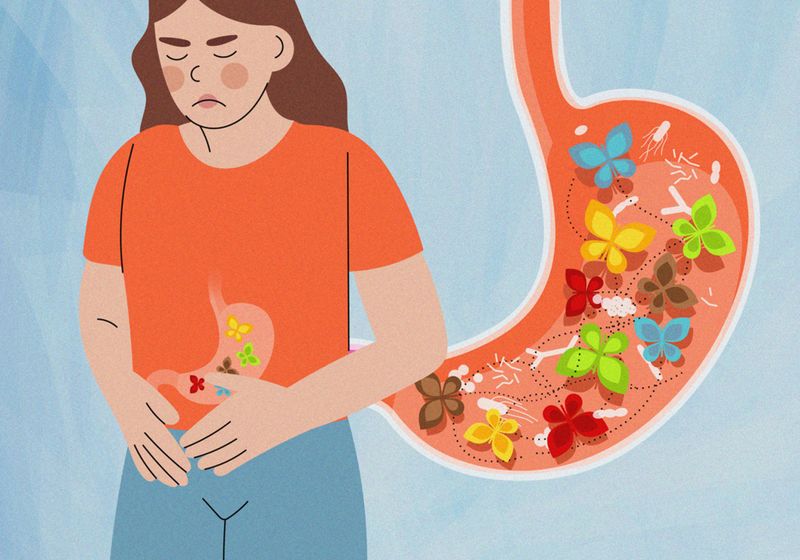Whether it’s jitters before a big presentation or excitement with a romantic interest, many people recognize the fluttery sensation of “butterflies in their stomach.” But what exactly causes these metaphorical butterflies to take flight?
Wei-Li Wu focuses on decoding the microbial signals in the gut-brain axis that contribute to different behaviors.
Hao-Chiang Chien
Wei-Li Wu, a neurobiologist at National Cheng Kung University, compares the sensation of butterflies in the stomach to the butterfly effect, where small changes trigger larger physiological responses. Emotional triggers, such as stress and anticipation, activate the body’s fight-or-flight response. “The first neurotransmitter to respond to stress is norepinephrine,” Wu explained. Sympathetic neurons release other stress-related hormones, such as adrenaline, to increase heart rate and alertness. Then, the hypothalamic-pituitary-adrenal axis kicks in and signals the adrenal gland to release cortisol, the primary stress-related chemical.
As a result, blood is redirected away from the gut toward the muscles and limbs, preparing the body for action. The gut’s own complex neural network, which is often referred to as the “second brain,” also plays a role. This system not only helps regulate digestion but also communicates closely with the brain through the vagus nerve to influence emotions like stress and anxiety. One ripple effect from these hormones can lead to the disruption of gut microbes. Together, these factors likely trigger that distinct feeling of a swarm of butterflies in the stomach.
Wu studies how gut microbes affect such behaviors, like stress. In his experiments, Wu placed mice under stress by introducing them to a new, unfamiliar mouse. The stressed mice avoided the stranger, displaying decreased social behaviors. However, when Wu altered the mice’s gut microbiome using antibiotics, he discovered something fascinating: Enterococcus faecalis appeared to suppress the stress response, making the mice less anxious.1
It’s a bit like the movie Inside Out, where each emotion (joy, sadness, or fear) has a role to play. In this case, Wu believes that the gut bacteria could either amplify or calm the stress response. “We want to use these bacteria as something we can study. We want to know what genes are important, what metabolites are important, and based on our creativity, maybe we can find out something [as an intervention or probiotic for stress].”
So, the next time those familiar flutters arise, consider this: It could be the microbiome stirring, not just emotions.
What makes you curious? Submit a question for us to answer in future “Just Curious” columns.

